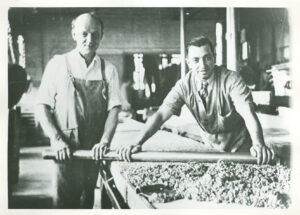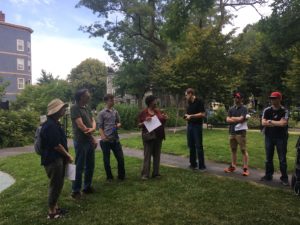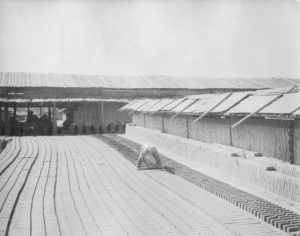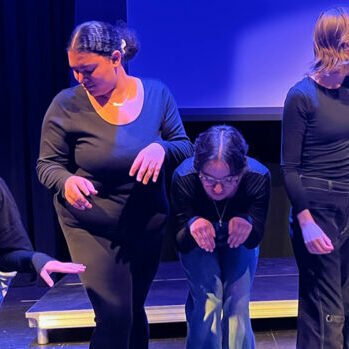
Summer play with teens set at Foundry of 1911 gave power to workers left out of history books
Above image: The cast and crew of “We Were Here” saw an opportunity to go beyond the written record to explore the lives and experiences of these women – as workers, but also as mothers, daughters, sisters and friends.
Teens from the Mayor’s Summer Youth Employment Program performed an original play Aug. 9 about a group of women who worked at the Blake & Knowles Steam Pump Factory in the early 20th century. The former Blake & Knowles location has recently been given new life as it has been transformed into The Foundry, a space for the arts, technology and community engagement. Created by playwrights Betsy Bard and Micaela León Perdomo and directed by Allison MacLaury, “We Were Here” tells the story of a group of Polish immigrant women who unwittingly became the subject of a court case challenging the working conditions for female employees in Cambridge and throughout Massachusetts. Although nominally about labor laws, this case involved fundamental issues of gender norms, immigration and class status.
The cast and crew of “We Were Here” saw the case as an opportunity to go beyond the written record to explore the lives and experiences of these women – as workers, but also as mothers, daughters, sisters and friends. Foundry teaching artist and playwright Bard recently reflected on the process of turning the women’s story into a play, and explained how she and the rest of the company took the historical research provided by History Cambridge and the Cambridge Historical Commission and brought it to life to give these women back their voices:
“The stories of the Polish women who worked in the foundry for The Blake & Knowles Co. making steam pumps have been left out of the history books. These women workers endured grueling work under harsh conditions to contribute to the booming industrial economy in Kendall Square in the early 20th century. The youth from the Mayor’s Summer Youth Employment Program honored these immigrant workers by learning about their work and their lives through research and presentations from the Historical Commission and History Cambridge.
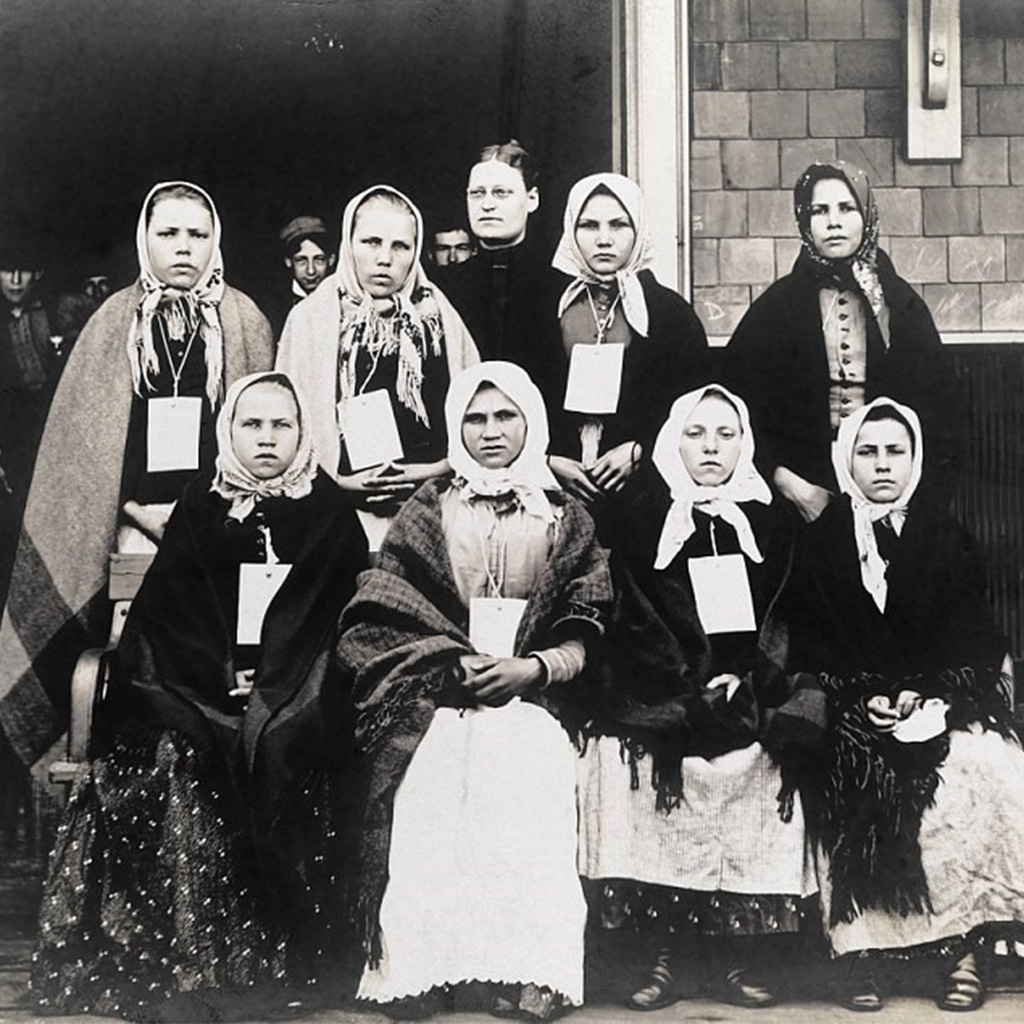
“‘We Were Here’ is a play consisting of imagined letters and journals illustrating what these women workers might have felt, experienced and discussed. The text, while not their words, effectively brings their stories to life. The ensemble also decided that music from Poland would add moments of joy to the workers’ long days by connecting them to their homeland. The play opened with the cast singing ‘Sowa Na Gaju Siada,’ a Polish folk song of hope and despair, before they transitioned into performing their factory work.
“The play encouraged new ways of thinking about the police raid that happened in the foundry in 1911. It was an opportunity to question the reporting of the story that appeared in newspapers across the county. The minimum-wage law for women and children, which was a result of the subsequent investigation, was also viewed from different perspectives that highlighted the problems as well as the benefits.
“Above all, our main goal was to give these 25 immigrant women from Poland an opportunity to finally be ‘heard.’
“We also hoped, by remembering them through telling this 1911 foundry story, we are showing that no matter who you are or where you come from, your work is valued and your presence is welcome at The Foundry in 2023. ‘We Were Here’ not only humanizes the Polish women who worked in the foundry, but also humanizes the newly renovated Foundry, the building where they worked over a century ago.”
Beth Folsom is programs manager for History Cambridge.
This article was originally published in our “Did You Know?” column in Cambridge Day.

